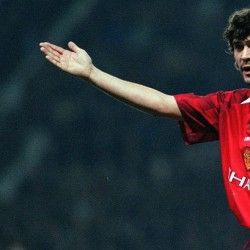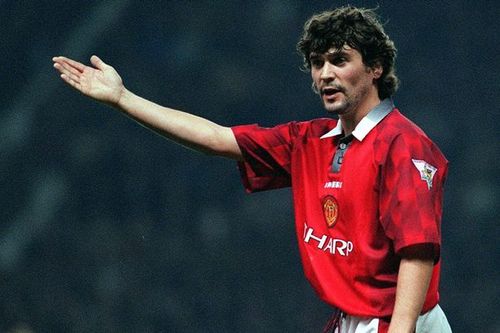
The influence exerted by Sports books

Roy Keane’s autobiography – As honest a book as one will ever come across
One of the best contributions my father made to my life was to get me a membership to the British Library in 9th class. I was a member for two years upto the end of 10th. After that it was time for Ramayya and IIT coaching, the two-year “thapassu”. You know how that goes. At some point in college, I took membership again for another year but it just did not work. A lot like Michael Jordan with the Wizards and Michael Schumacher (praying for you champ!!) with Mercedes. Living in a campus halfway to Timbuktu as Shashi Tharoor put it, I hardly went to the library and only read about a handful of books. But those two years in school will be a cherished period for me.
I ran through the children’s section in quick time, my favourites being the Just William series- absolutely hilarious accounts of a young boy’s adventures in the English countryside. Reading this series was probably the first time I Laughed-Out-Loud reading a book. None of the books I’d read before this-Enid Blyton, Harry Potter, Agatha Christie-had great laughs. Once I was done with the children’s section, I came out into the general section and browsed the collection, trying to pick up stuff of interest. The problem with the British Library was, I never saw popular names like Jeffrey Archer or Sidney Sheldon, which was probably a good thing looking back. I couldn’t find anything of interest; I could only see serious academic titles like Victorian Architecture in the 18th Century. I started to wonder if my time at the British Library was up, if I should just cancel the membership. Then I saw it.
The book was called London Fields. I don’t remember what I expected from the book when I picked it up. It was about football and that was good enough, considering the much more serious nature of the other books. The objective of the author, Charlie Connelly, was to focus on football in London. He wanted to cover the entire spectrum from the glamour of the Premier League to the amateur Sunday League games at Hackney Marshes, supposedly one of the largest collection of football pitches in the world.
The platform that Mr. Connelly used to examine the state of affairs in London football was the FA Cup. He went to an FA Cup game in London for every round from the first preliminary round upto the final (don’t remember if it was at Wembley or Cardiff). The first thing I learnt from the book was that there are six preliminary rounds before the First Round Proper. Premier League clubs join the competition in the Third Round Proper.
Visualisation is the essence of reading. The writer paints a picture in the reader’s mind with his words, transporting the reader to a different world. Mr. Connelly is excellent at this job. His description of match experience-the stadium, the weather, the crowd and the game is so vivid, that you can almost feel the cold wind and rain on your skin as he narrates how it feels to be at some obscure ground like Yeovil Town or Leyton Orient on a particularly wet day. He talks about the usual struggles of small clubs, their dream of reaching the Third Round Proper and drawing a famous name like Manchester United. The amount of money they could make from a share of the gate receipts of Old Trafford would set them up for a whole year.
When I say the writer watched every round of the FA Cup in London, there is one caveat. In one particular round, he goes to White Hart Lane to watch Tottenham-the team he supports-play an away game on the jumbotron screens that are at either end, on top of the stands. By his own admission, it was a bizarre experience-a handful of people in an empty stadium, watching the game on the big screen. The structure of the book is such that chapters alternate between watching an FA Cup match and a look at other issues facing the game. There is an interview with a referee, a discussion of amateur football at the Hackney Marshes as mentioned above, probably one on hooliganism amongst other issues I can’t recollect.
Another of my earliest sports books was Roy Keane’s autobiography. When I came across this autobiography, again in the British Library, I was dumbstruck. Until then the only autobiographies I’d heard of were of great world leaders like Gandhi. When I took this book home, once again I didn’t know what to expect. This was the first ever autobiography I was about to read. I knew nothing about him except that he was Man Utd captain. I need not have worried. It was absolute blockbuster stuff. It was so good, that I read many footballers’ autobiographies subsequently-George Best, Beckham and Gerrard-but none came anywhere near the brutal honesty and fiery temper of Keane.